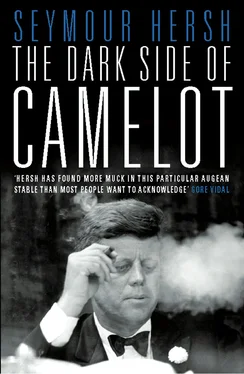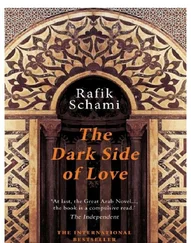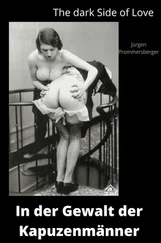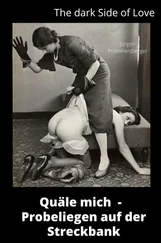1 ...7 8 9 11 12 13 ...34 Finally, Kennedy turned to him, Bruno said, and “begins asking me a lot of questions about Wisconsin. He asks me to be his executive director for his campaign in Wisconsin. Later it dawned on me that he didn’t know anything about me, but I had the identity of [having worked for] Bill Proxmire.” Bruno took the job and, after the election, became a political advance man in the White House. He remains loyal to this day.
Kennedy’s treatment of Bruno was that of a master to a servant, just as his father, Joe, would have dealt with the hired help. Kennedy’s former lover talked at length in our interviews about what she termed his “tremendous acceptance of inequality.” Kennedy did articulate the view that “things should be better, yes.” He also “could do acts of personal kindness, yes.” But, she said, deeply ingrained in him was “the acceptance of inequality at every level—that women were not equal with men, that African Americans were not equal with white people, that Jews were not equal to gentiles. That was absolutely acceptable, and that doesn’t mean he was a horrible racist, anti-Semitic, classist, sexist person. He was a person of his time. And that involved a lot of limitations.”
When discussing the poor, the blacks, the Jews, “he used to say, ‘Poor bastards.’ That was it. There were a lot of poor bastards in this world. There were people who either didn’t get jobs they wanted or they didn’t get programs they wanted. That phrase covered so many times when he would have turned someone down for a job, or would have turned down some legislation that was being pressed on him. You know, ‘Poor bastard, they’re going to feel terrible.’” Kennedy seemed to believe that “people who are different have different responses. The pain of poor people is different from ‘our’ pain.”
Kennedy was aware of the disconnect. While interviewing candidate Kennedy for a Time magazine cover story in the late 1950s, Hugh Sidey suddenly asked if he had any memory of the Depression. Sidey had grown up in rural Iowa and vividly recalled the harshness of those days. “Kennedy had his feet on the desk, and he looked across at me and he said,” Sidey said in a 1997 interview for this book, “‘I have no memory of the Depression. We lived better than ever. We had bigger houses, more servants. I learned about the Depression at Harvard—from reading.’” Jack Kennedy, Sidey told me, with some consternation, “just hadn’t encountered breadlines or bums that used to come to our doors and ask for handouts. He was the ambassador’s son, and that was a very elegant existence. He was never in contact with the reality of the Depression.”
Kennedy’s former lover believed that it would have been difficult for Kennedy, given his comfortable family circumstances and the belief in his own destiny, to understand the aspirations of the people in Cuba and South Vietnam, the nations that became the object of presidential obsession, anger, and frustration. Kennedy, the woman said, “did a wonderful thing in trying to bring people into a sense of participation. But I feel most of it was on the basis of being special, and surrounding himself with the best and the brightest—with people whose accomplishments were their badge of worth.” Thus, when “things got really troublesome,” she said, the president and his immediate aides “reinforced each other’s isolation. Those people, in their specialness, got separated from reality. It was as if Bundy, McNamara—all of these extraordinary men—in rising and shining, had cut off their ability to feel their own pain. I never did experience John Kennedy in a moment of reflection or pain or sadness,” she told me.
The affair came to an end in late 1962, the woman said, but not before she learned of Kennedy’s extensive womanizing. She was “crushed” by the news. “I thought, ‘Gee, maybe I’m really special.’ But no, I was one of many, many people. That was helpful in the long run, because I decided to leave Washington, and it was time to go.”
The end was unsentimental. “It was very painful to be with someone who was everything and I was nothing,” the woman said. “It was painful to have it called love. It was painful to be chosen and to have someone be interested in me for my class, my speech, my looks, my whatever—but not my heart.” She was abroad, sitting by herself in a European café, when she learned of Kennedy’s assassination. “It was sort of symbolic in the sense that I was alone with it,” she said. “I’d been alone with myself during that relationship and I was alone” at Kennedy’s death. “I read newspapers. I read magazines. I read every single thing I could read. I did not cry.”
“What’s the moral of the story?” Kennedy’s former lover rhetorically asked during one interview. “That this grand man, this man of energy and intelligence and glamour and power, was to a certain extent dehumanized by the privileges that made him who and what he was. He allowed us to think that there are people who have it all. And that’s a very dangerous illusion, because at some point they know they don’t. Mythologizing this man did not help him and did not help us, because it allowed us to not take responsibility for our participation in the public life. We say, ‘Oh well, let this wonderful leader do it.’ But that is not inviting us to think.”
The Kennedys’ belief that they were extraordinary people who could make their own rules began long before Jack was born. It started with his grandfather.
* No outsider can fully comprehend the dynamics of another family’s life, but outsiders were often shocked by what they encountered in the Kennedy household. In 1957 Lyndon Johnson, the Senate majority leader, was asked to make a speech in Palm Beach. It seemed only natural when Rose Kennedy telephoned and invited him to come to the family’s beachfront home for lunch. Johnson, recovering from a serious heart attack, was accompanied on the trip by Lady Bird, his wife; Bobby Baker, his aide and confidant; and Senator George Smathers, of Florida. “So we went over for lunch,” Baker recalled in an interview for this book. Rose Kennedy, gracious and charming, was alone. Suddenly, Baker said, “Old Man Joe comes in with a seventeen- or eighteen-year-old girl. Doesn’t say boo. Walks right in and goes upstairs” and engages in what, clearly and noisily, is sexual intercourse. “Here you have the majority leader of the Senate and he and Jack had a great relationship,” Baker told me. “I thought it was the rudest thing I’ve ever seen.” The lunch went on as if nothing had happened. Baker learned later, he said, that the young woman was Joe Kennedy’s caddy from the French Riviera, where the Kennedys maintained a vacation home.
History has been kind to John F. “Honey Fitz” Fitzgerald, Jack Kennedy’s maternal grandfather, who is invariably portrayed as an amiable longtime Boston pol famed for his energetic campaigning and singing “Sweet Adeline” at political events. The athletic, handsome Fitzgerald was said to be the first politician to campaign by automobile: dramatically speeding across Boston, he preached his antiboss, reformer message at twenty-eight rallies on the last night of his successful 1905 campaign for mayor. No one, it was said, shook more hands, danced more dances, talked more rapidly, or generated larger and more enthusiastic crowds than Honey Fitz.
It is that historical legacy that survives—and not the reality. Fitzgerald’s contentious two terms as mayor of Boston, marked by sworn testimony of payoffs and cronyism, have been muted over the years into just another example of big-city political business as usual. His political alliance with his four brothers, who were provided with city jobs and other largesse, including valuable liquor licenses, was the beginning of the brother-to-brother family loyalty that would be repeated again and again in the next generation. And Fitzgerald’s political humiliation in 1919, when he was investigated in the House of Representatives for eight months before being unseated for vote fraud, is written off in a sentence or two in most Kennedy family histories.
Читать дальше












